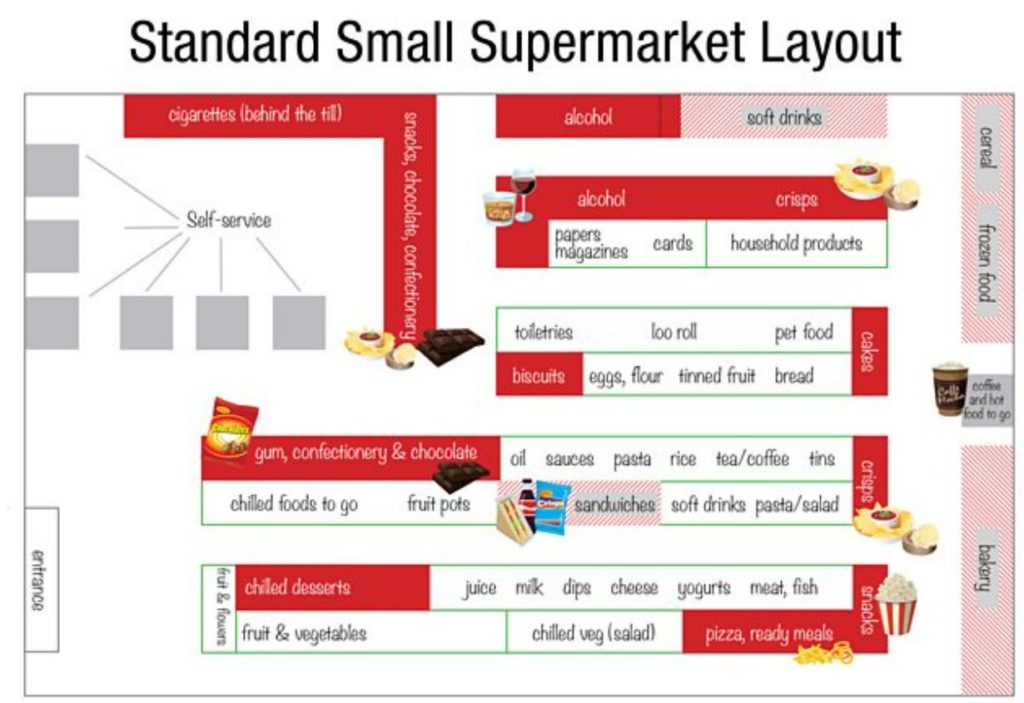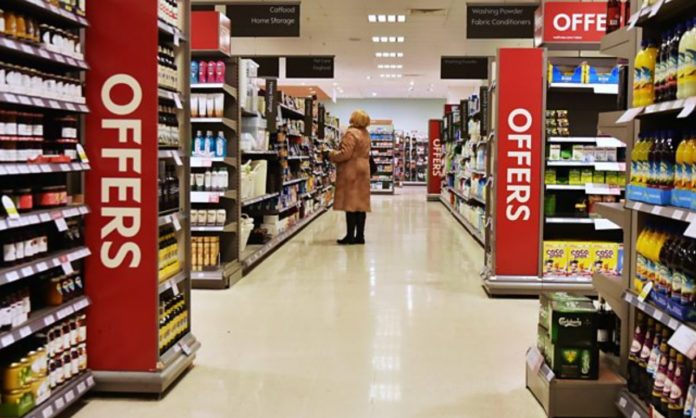In response to a government questionnaire, health professionals and NGOs suggested supermarkets should do more to combat obesity. But how can retailers persuade us to buy unhealthy products, and how can you avoid surrendering to the temptation?
Even if you go to the store with a list of things you need, chances are you’ll come home with a few more. According to a recent analysis from the Royal Society for Public Health on supermarket marketing strategies, more than one-third of us buy unhealthy foods on impulse because they’re on sale.
Every year, the average person in the United Kingdom makes 221 visits to the supermarket. That’s a lot of chances to buy unhealthy meals on the spur of the moment. Here are a few things to keep an eye out for the next time you go shopping.
How does the design tempt you?
Have you ever wondered why fruit and vegetables are usually found near the entrance to the supermarket? According to the RSPH analysis, the argument is that putting fruit and vegetables in your cart makes you feel virtuous, so you’re more likely to treat yourself later when you’re in the confectionary aisles.
Similarly, dairy items, bread, and other necessities like eggs are frequently found at the back of the supermarket, which means you’ll have to walk through a lot of deals and displays to get to them.
According to the Obesity Health Alliance, almost 43% of products and drinks in prominent areas of large supermarkets are sugary. So it’s no surprise that one in every five UK adults believes shops cause them to stray from their weight-loss goals. According to study, moving snacks away from checkouts reduces snack purchases by 17%.
Adults aren’t the only ones who are being targeted. According to the RSPH and Slimming World, nearly 90% of items displayed at children’s eye level in UK supermarkets are classified as unhealthy by the Food Standards Agency.


More offers…
According to recent research from Cancer Research UK, little under a third of food and drink items are purchased on sale. It was discovered that those who buy more than 40% of their food and drink on sale are more likely to be overweight, and that over half of all chocolate, crisps, popcorn, and savory snacks purchased are on sale. According to the study, bargain-hunting buyers buy 30% fewer fruit and nearly 25% less vegetables.
This new study backs up a previous Public Health England report on sugar reduction, which indicated that price promotions like multi-buy deals increase people’s purchases of sugary foods and drinks by 22%.
The government gave forth specific intentions for promotions in the second phase of its Childhood Obesity Plan, saying:
“We intend to ban price promotions, such as buy-one-get-one free (BOGOFs) and multi-buy offers or unlimited refills of unhealthy foods and drinks in the retail and out-of-home sector through legislation. In doing so, we aim to stop promotions that encourage bulk buying and over-consumption of unhealthy products.”
Since then, the government has begun a consultation on limiting advertising of high-fat, high-sugar, and high-salt foods based on location and price. Although many charities and health organizations have responded, the outcome is still unknown.
According to the RSPH, the price of items is important, as is whether or not they are on sale. According to research, raising the price of less healthful items reduces purchases, while lowering the price of healthier ones boosts sales.
How should a supermarket look like?
According to The RSPH and Slimming World’s recent research, Health on the Shelf, supermarkets need to do more to promote healthier options. They engaged a panel of specialists, who offered a number of suggestions, including:
- Move junk food so it’s not at eye level or checkouts
- Use the Government’s EatWell plate to determine the proportion of products stocked according to their nutritional value
- Change end-of-aisle promotions – if sugary drinks are promoted, have healthier alternatives on promotion too
- Increase space given to fruit, veg, wholegrains and reformulated products with fewer calories and less sugar
- Provide signs nudging customers to make healthier purchases
- Hand out healthy snacks in trials and provide free fruit for hungry shoppers
- Have knowledgeable, friendly staff with a community feel to create a stimulating shopping experience
- Give discounts on healthier products instead of BOGOFs on unhealthy products, or have one day a week when all healthy products are discounted.
The People’s Supermarket in London is putting these suggestions into practice.
“The environment in which we live is a major contributor towards obesity, and supermarkets have both the power and influence, as well as a responsibility, in tackling their contribution to this ‘obesogenic’ environment,” adds Shirley Cramer CBE, Chief Executive of the RSPH.
“There has been some progress by supermarkets in areas such as removing junk food from check-outs, but our research shows shoppers and industry experts feel there is much more supermarkets can and should do to promote healthier choices.”
How can you persuade yourself to buy more nutritious foods?
There are a few methods you may apply in the store to make better choices.
- Make a note on your shopping list to remember yourself to buy nutritious foods. The BBC series Trust Me I’m A Doctor conducted a six-week research in a supermarket, comparing sales data with data from control stores. The sales of fruit and vegetables at their store climbed by 8% as a result of frequent reminders to buy them.
- Divide your cart into sections, with a significant area set aside for fruits and vegetables. According to a study, customers who did this were more likely to buy healthier goods.
- Eat fruit or vegetables before you go shopping
- Think carefully before buying special offers
- Make a meal plan and stick to it
- Never shop while you’re hungry
Image Credit: Getty
You were reading: Can supermarkets coax you to buy healthier foods?
